32 Accent Wall Ideas: Designs to Elevate Your Room's Style
Thinking of incorporating a featured wall into your decor? Here are some tips for how to do it right.
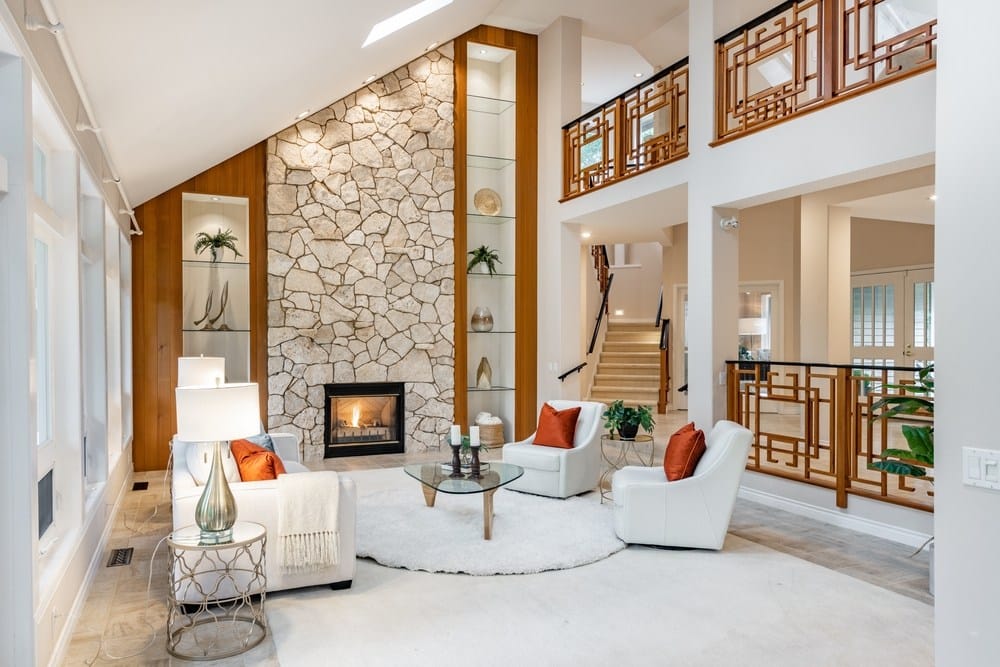
There are many ways to add style and personality to your room. Interior designers often use accent walls to transform ordinary spaces into design showpieces. Turning one of your walls into an accent wall can transform the overall vibe of a room and create a space that's uniquely your own.
In this post, we explore various accent wall ideas, such as color, texture, or pattern, to help elevate your space. We also show you how to customize an accent wall to suit any room in your home, with plenty of inspiration to get you started.
Best colors for accent walls
Choosing the right paint colors for your accent wall is the first and most important step. The wall color will set the tone for the space and can completely alter the atmosphere, so you must choose wisely. Let's look at some of the most popular color choices among homeowners and how each can elevate your room’s style.
Hunter green
This rich, deep, and calming color is perfect for creating a nature-inspired atmosphere in your home. A hunter-green wall can add a sense of calm and grounding to your home.
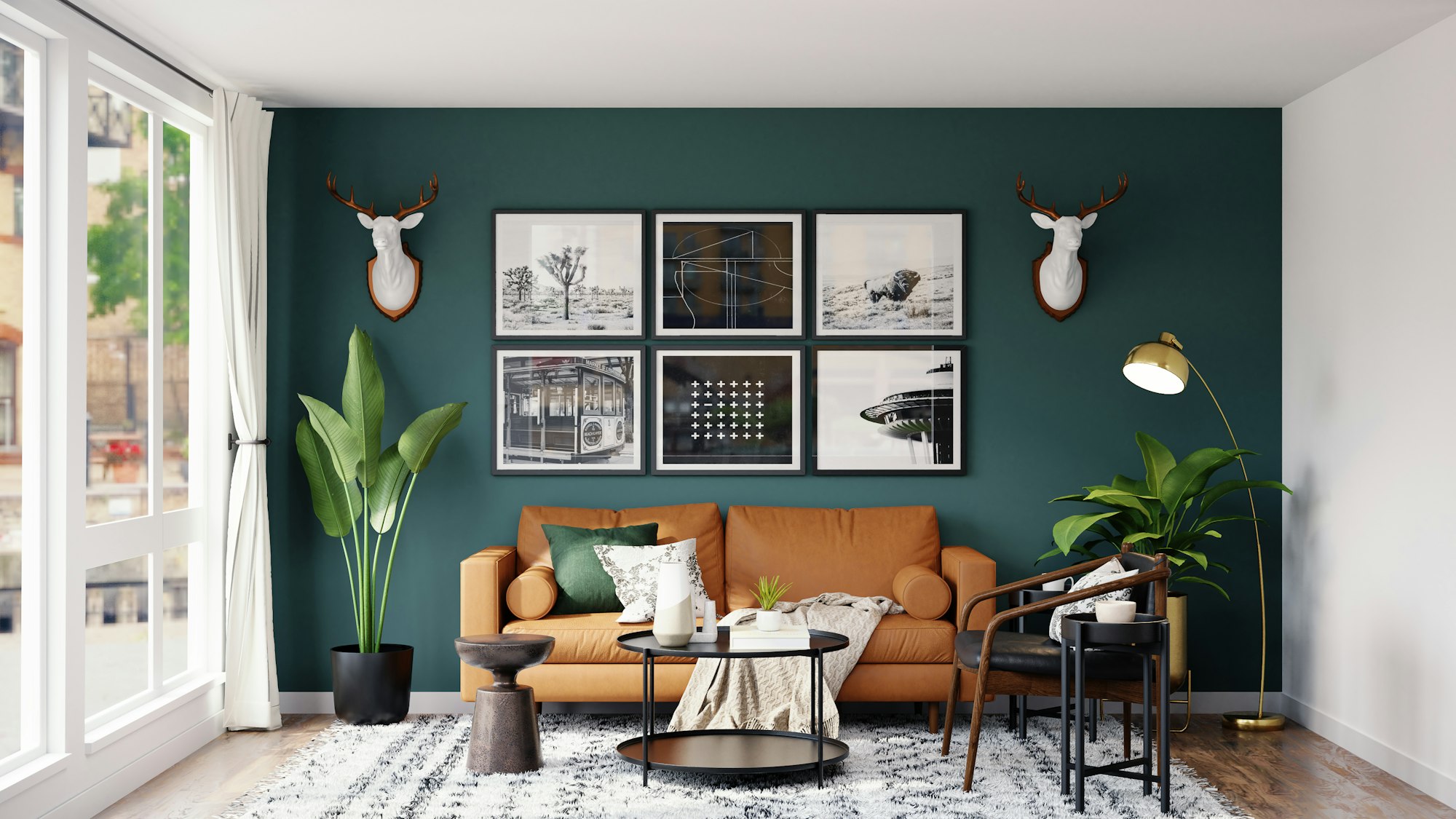
It works well in living rooms or bedrooms, especially when paired with natural textures like rattan, wood or stone. For example, a hunter-green wall behind a vintage leather sofa exudes elegance and coziness.
Navy blue
A navy blue wall can be incredibly versatile. This deep hue works well in both contemporary and traditional settings, making it a popular choice for many.
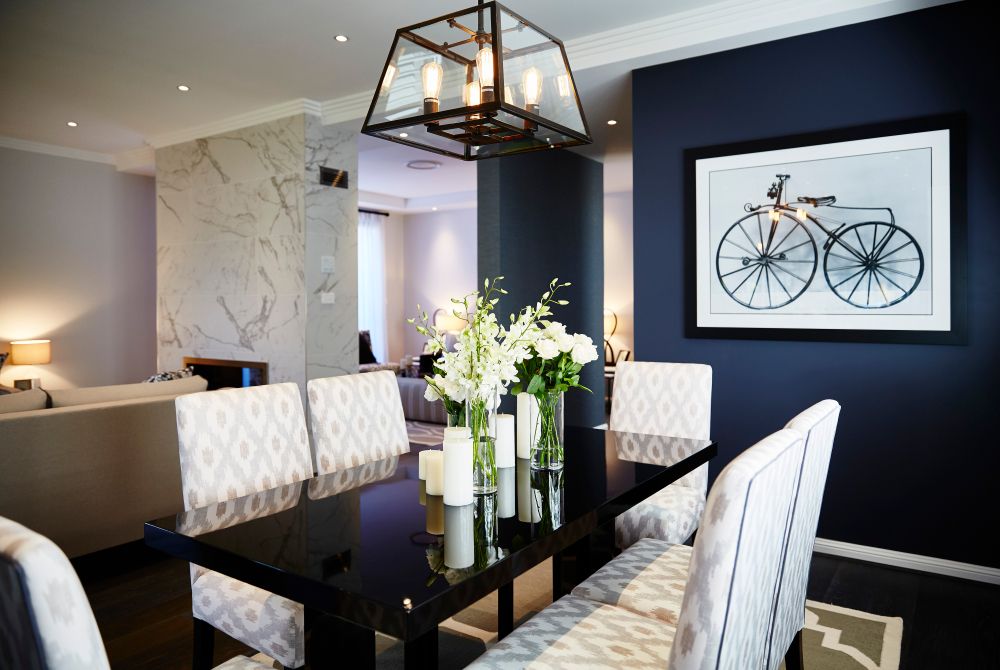
For example, in a bedroom, a navy blue wall behind the bed creates a soothing, cocoon-like feel that makes the space feel cozy yet sophisticated. Add in some gold or brass accents for an effortlessly chic effect.
Red
Red is a bold and passionate color. A red wall is a perfect way to make a strong statement. Red is an excellent choice for dining rooms, as it is known to stimulate appetite and conversation. A modern dining space with a striking red wall illuminated by a statement chandelier is inviting and dramatic.
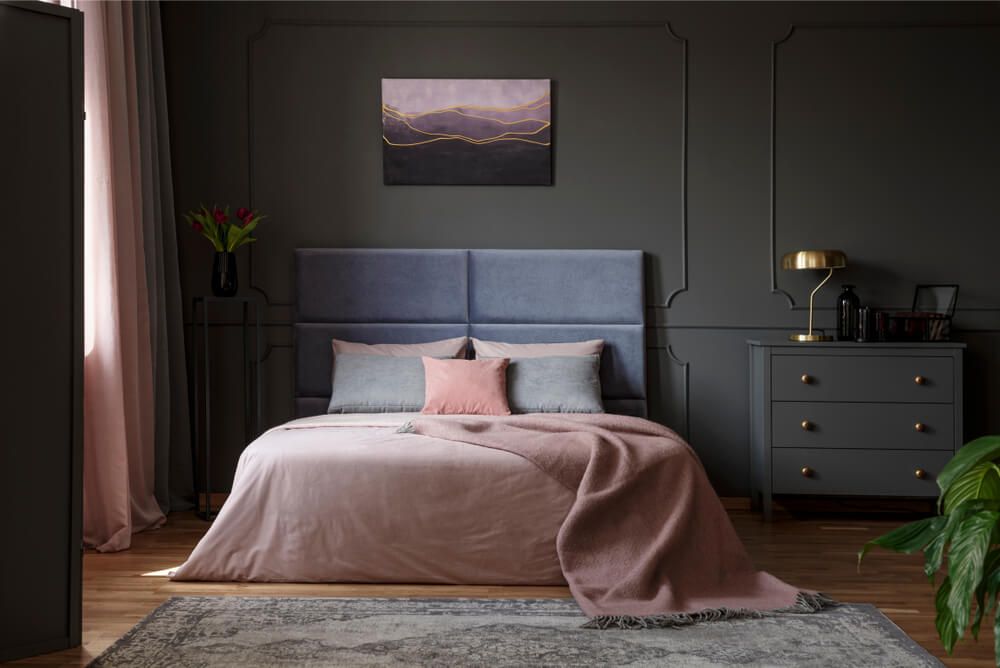
Brown
Brown walls can add warmth and depth to a room. This color works well when creating a more earthy and grounded vibe. Pair a dark chocolate brown wall with lighter, neutral furnishings to create balance. This color works particularly well in living rooms and bedrooms, making them feel comfortable and inviting.
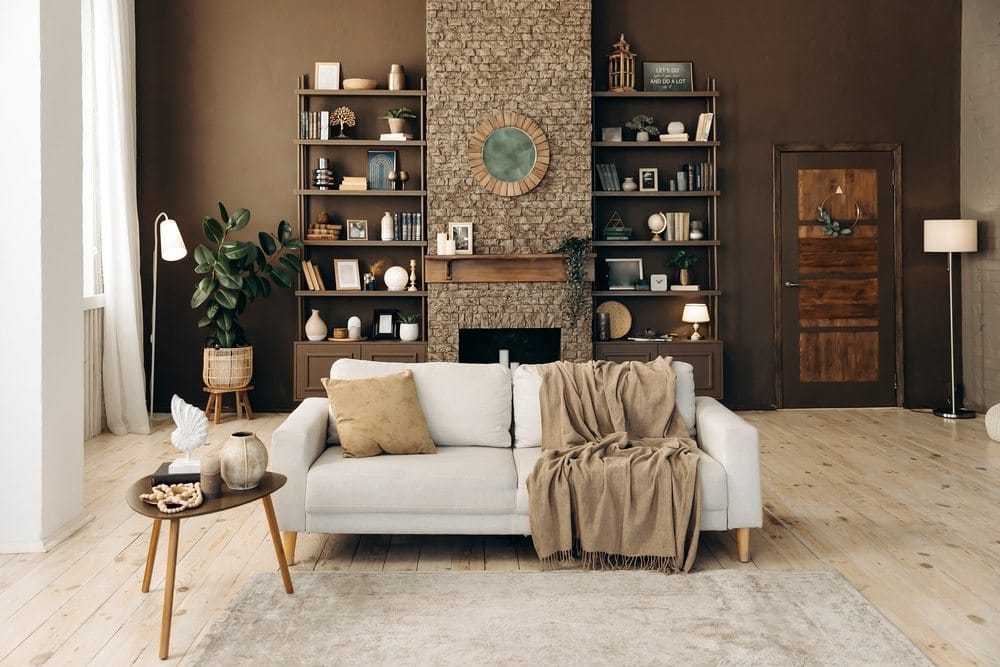
Yellow
Yellow walls are perfect for spaces that need a little uplifting energy. This bright, cheerful color can create a sunny, optimistic vibe in kitchens or entryways. For example, a soft, butter-yellow wall paired with white cabinets and natural light flooding the room equals instant happiness.
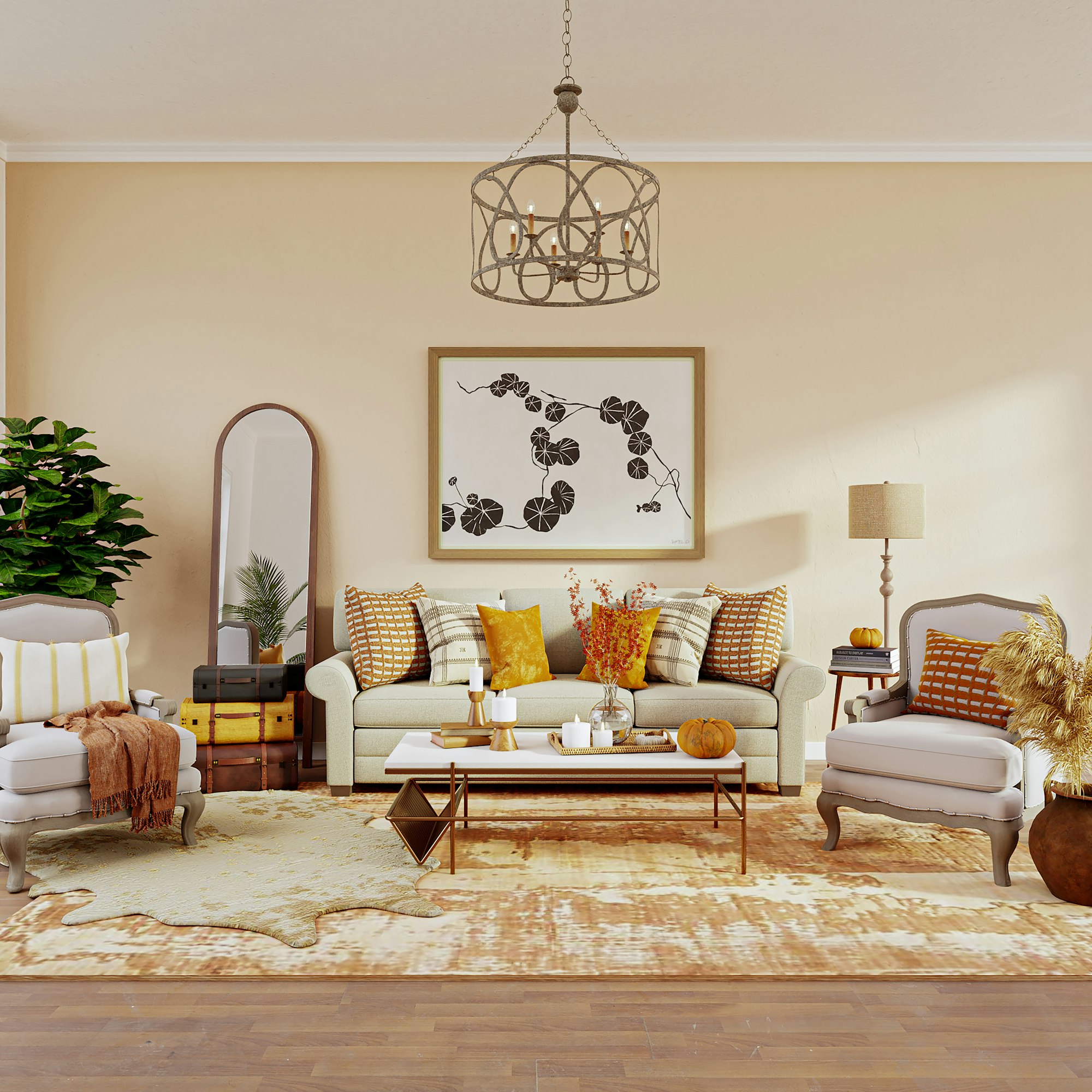
Light blue
Light blue walls evoke a sense of calm and tranquility. This color is perfect for bedrooms or bathrooms, be it an accent wall or the whole room. This shade of blue reflects natural light beautifully and enhances the airiness of the space.
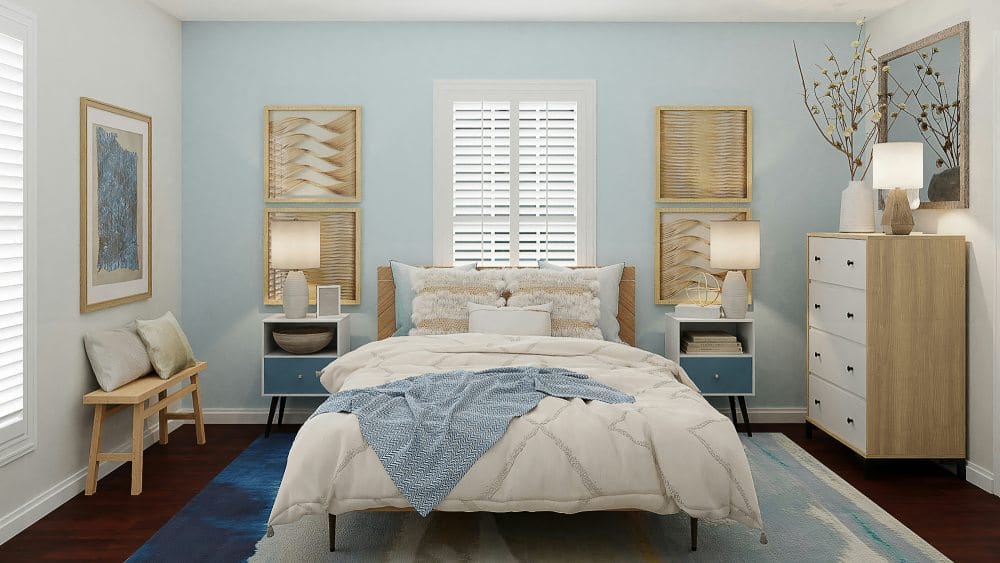
A light blue wall behind a white bed frame creates a serene, peaceful environment ideal for winding down at the end of the day.
Pink
Depending on the shade you choose, pink can be playful or sophisticated. A soft blush pink wall is perfect for a modern, feminine bedroom, while a deeper mauve pink could bring warmth to a living room. Pair it with metallic accents or muted tones to balance it out and add a more grown-up feel.
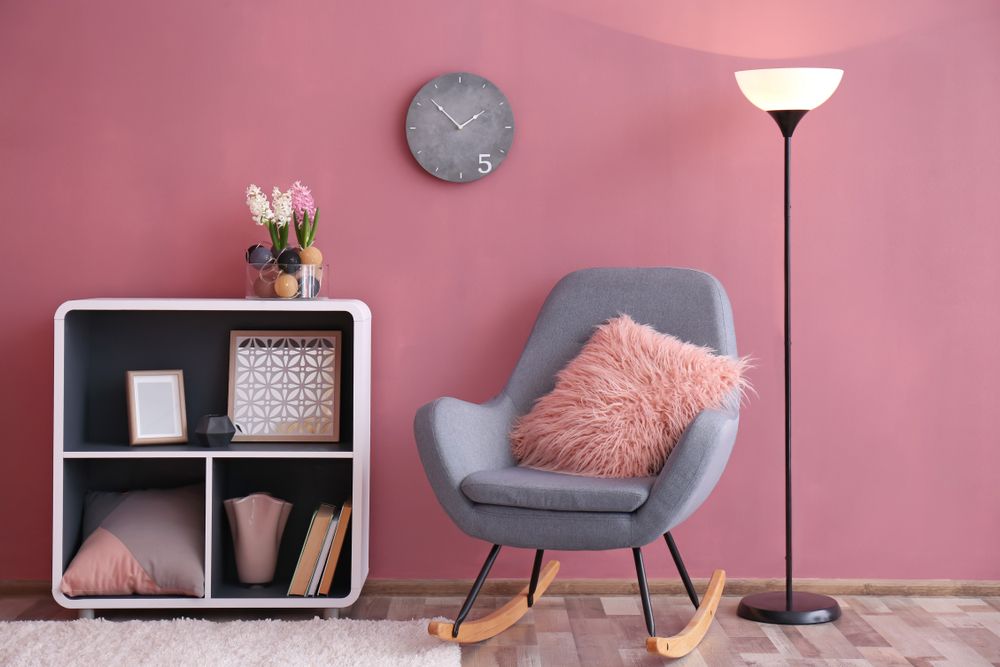
Purple
Purple can be a daring choice for an accent wall, but when used correctly, it will add a regal touch to any room. A deep plum wall can create a luxurious atmosphere in a bedroom or reading nook. Think of a cozy, moody corner with plush velvet furniture set against a plum background—it’s a perfect retreat.
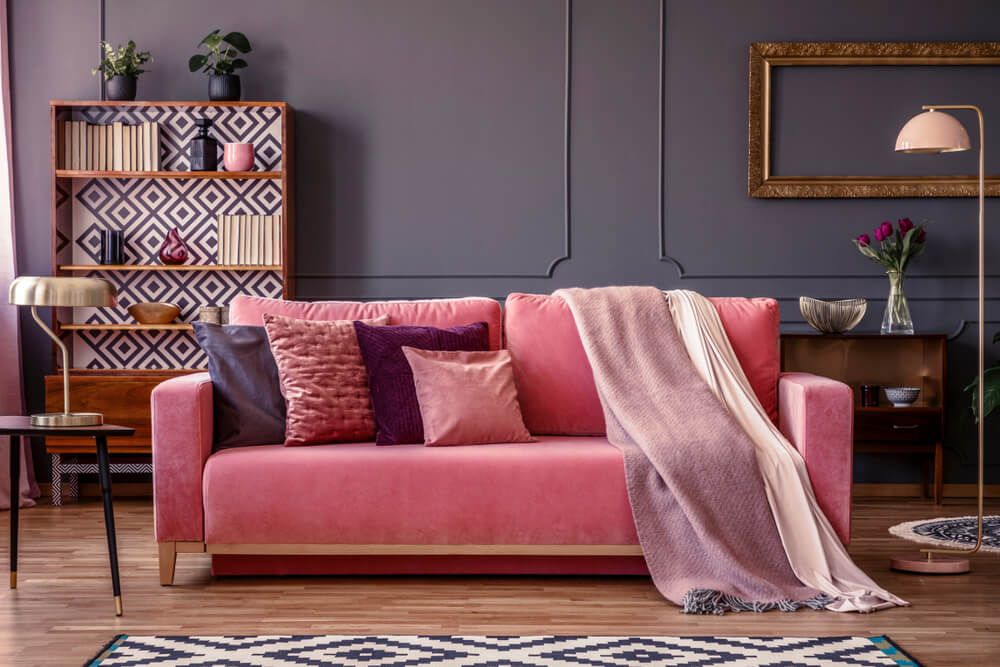
Black
A black wall might seem counter-intuitive, but this moody shade can actually add depth and drama to your space. It creates a bold contrast, especially in rooms with plenty of natural light.
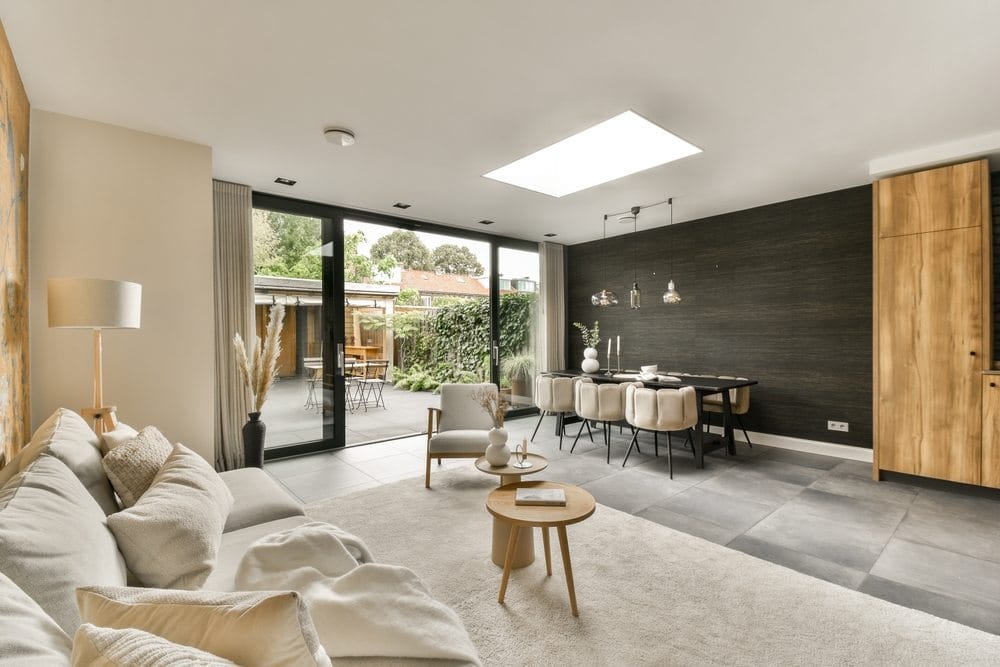
Consider a black accent wall in a living room with high ceilings and large windows—paired with sleek furniture, it creates a contemporary, sophisticated space.
Orange
Orange walls are energetic and inviting, making them perfect for areas that encourage activity and conversation. The color works well in various rooms, from dining rooms to home offices. A muted terracotta tone could add a modern twist to a room, offering warmth without being too overwhelming.
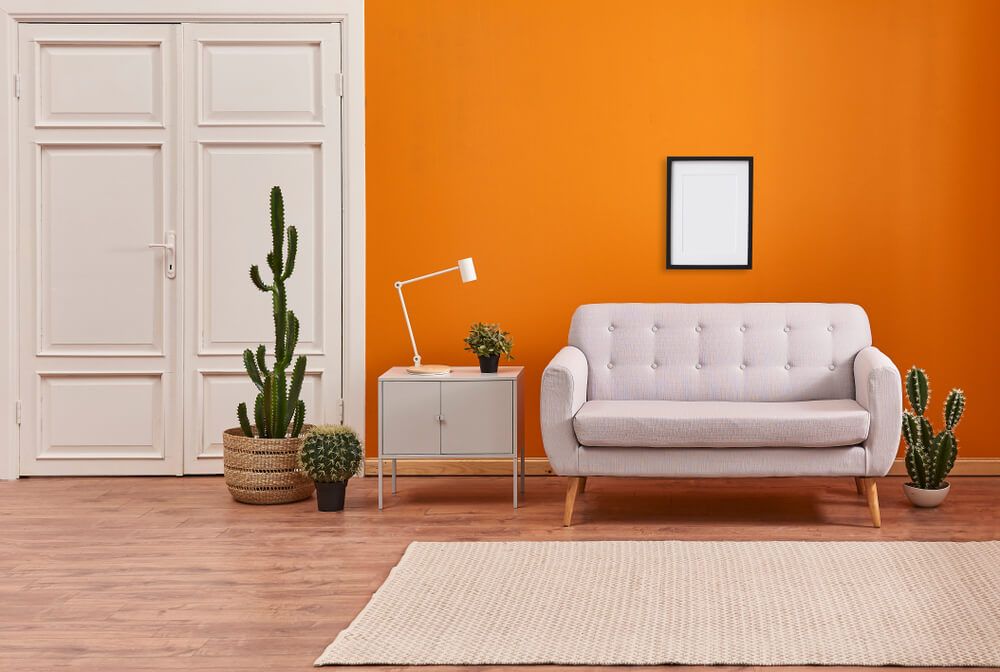
Textures and materials accent wall ideas
Creating an accent wall isn't just about painting one wall a different color. You can also add texture to bring depth and visual interest, transforming your space from ordinary to extraordinary. Let's look at some of the most popular textures and materials you can use to create a striking accent wall.
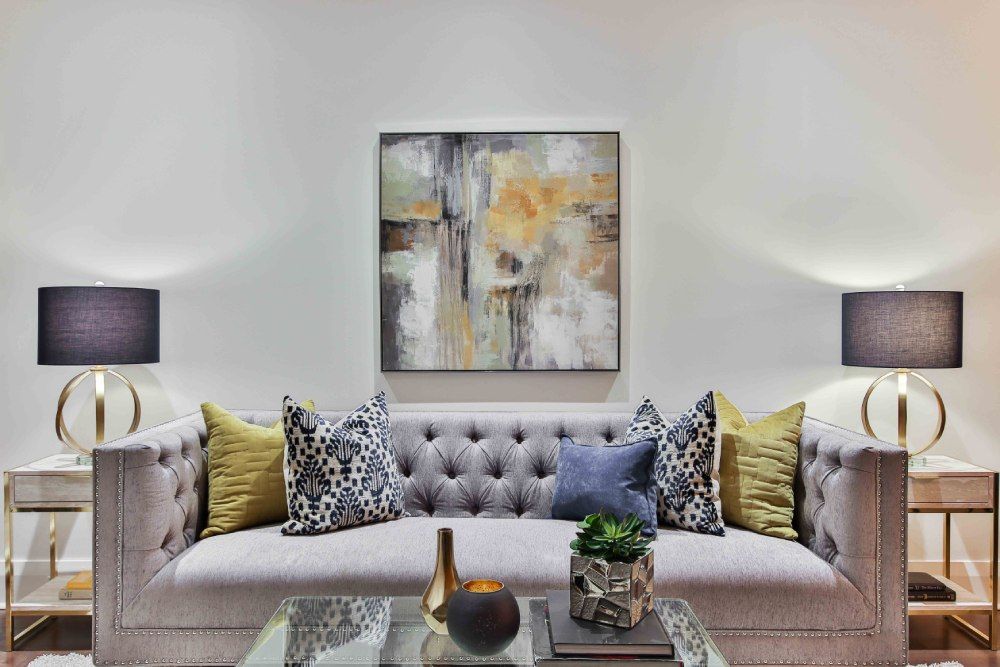
Wood accents
Whether rustic or sleek, wood paneling can instantly create warmth and add character to a room. A reclaimed wood accent wall in a bedroom adds a rustic, earthy touch, while smooth, polished wood panels lend a more contemporary feel to a living room.
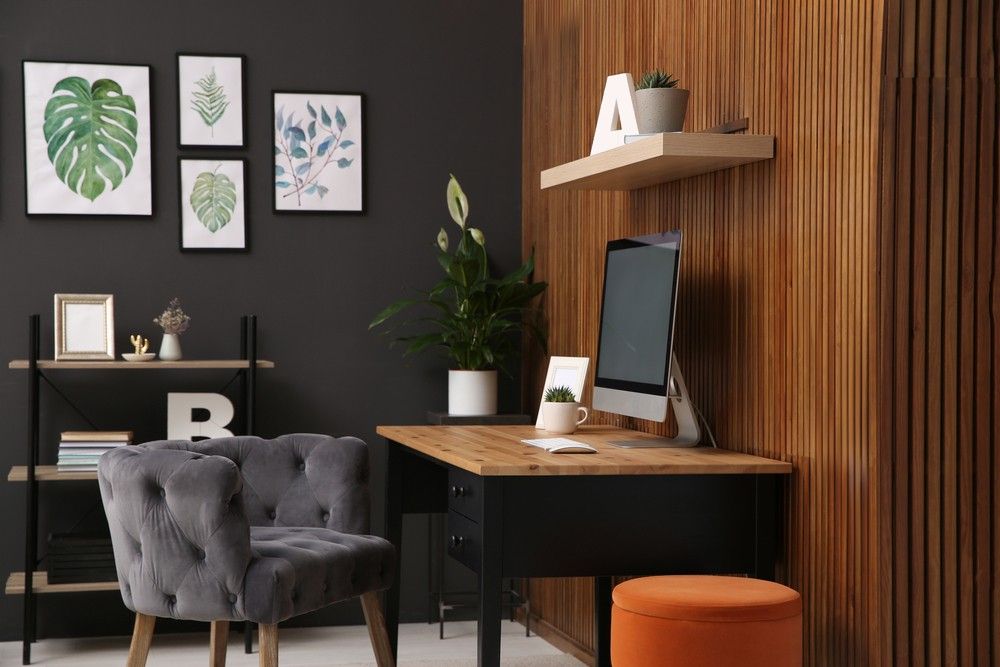
The natural grain of wood draws the eye and adds a layer of organic texture that pairs well with both modern and traditional decor.
Stone accents
A stone accent wall can introduce an element of rugged luxury to your space. Exposed brick or stone walls work well in living rooms, dining rooms, or even bathrooms, adding a tactile element that contrasts beautifully with sleek, modern furnishings.

Imagine a stone wall behind a freestanding bathtub in a minimalist bathroom—it creates a spa-like feel that’s both modern and timeless.
Textured paint
Textured paint can subtly elevate a room by adding dimension without overwhelming it. Techniques such as stippling, sponging, or rag rolling can create visual interest while still keeping the design simple and understated.
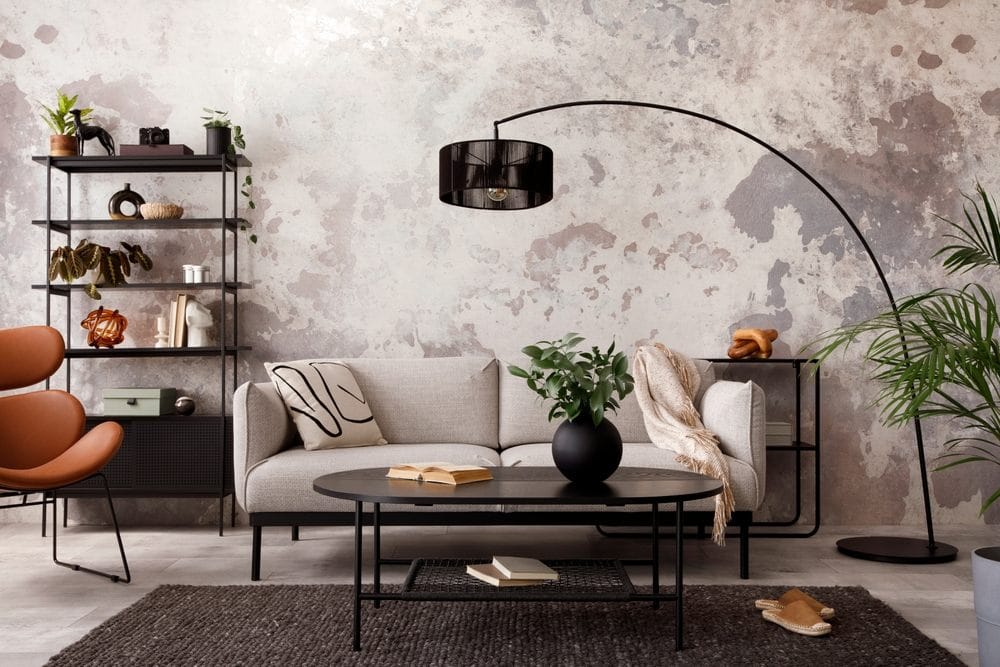
A light, textured paint accent wall in a neutral color can add depth to an otherwise simple bedroom or hallway.
Shiplap
Thanks to its versatility, shiplap has become a popular choice for accent walls. It has taken many homes by storm and is a favorite for those looking to add farmhouse charm to their decor. Shiplap can add architectural detail to your space, whether painted white for a coastal vibe or stained dark for a rustic look.
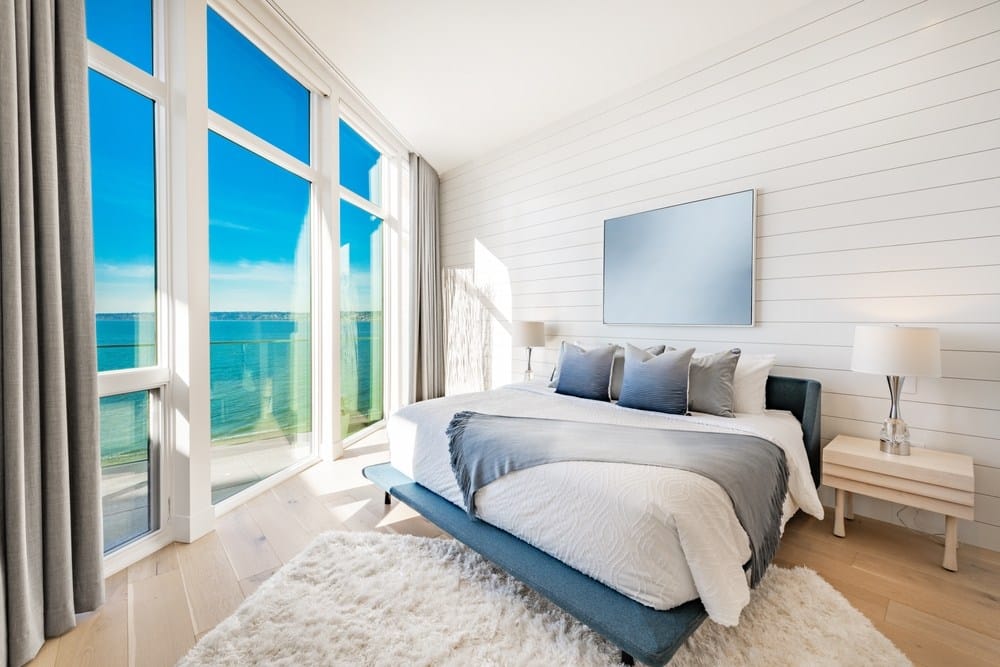
Board and batten
If you love a clean, modern look with some texture, the board and batten finish is a fantastic choice. This type of wall paneling, made of narrow strips of wood placed over the joints of wide boards, adds depth and dimension without being overly ornate.
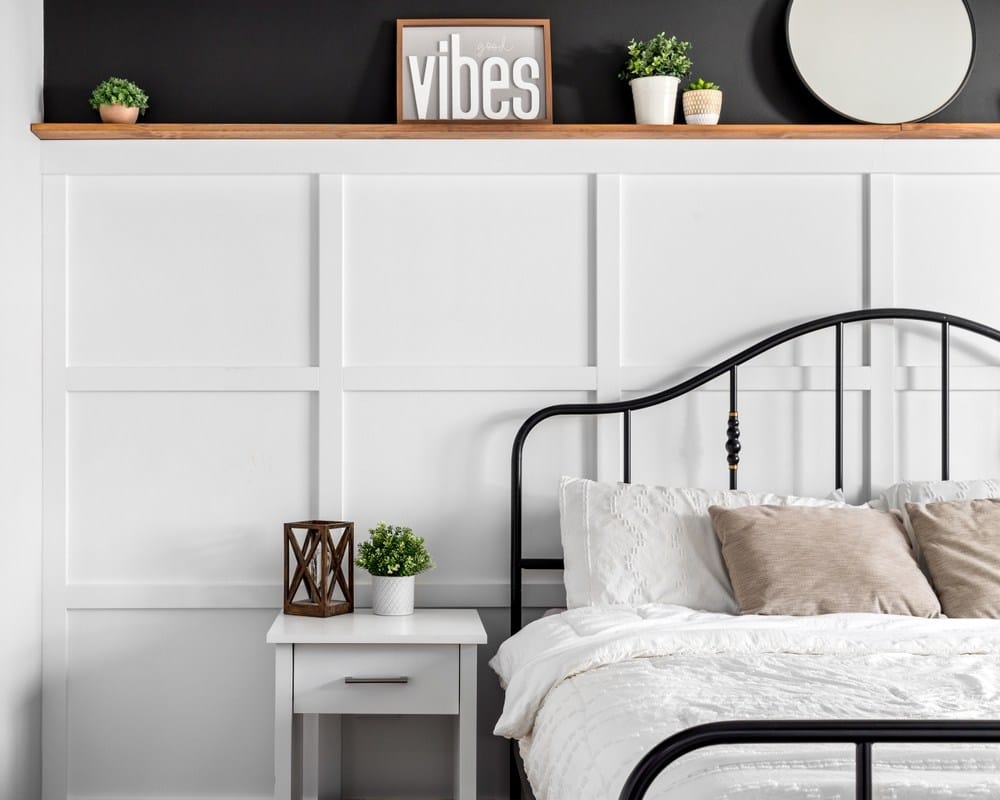
This layered geometric effect is ideal for contemporary spaces. A board and batten accent wall behind a bed or a focal point in a hallway can add subtle visual interest and a polished finish.
Concrete look
If you're a fan of industrial design, a concrete-effect accent wall is an excellent way to bring that aesthetic into your home. This material works particularly well in lofts or modern apartments, offering a raw, edgy feel that’s both cool and sophisticated.
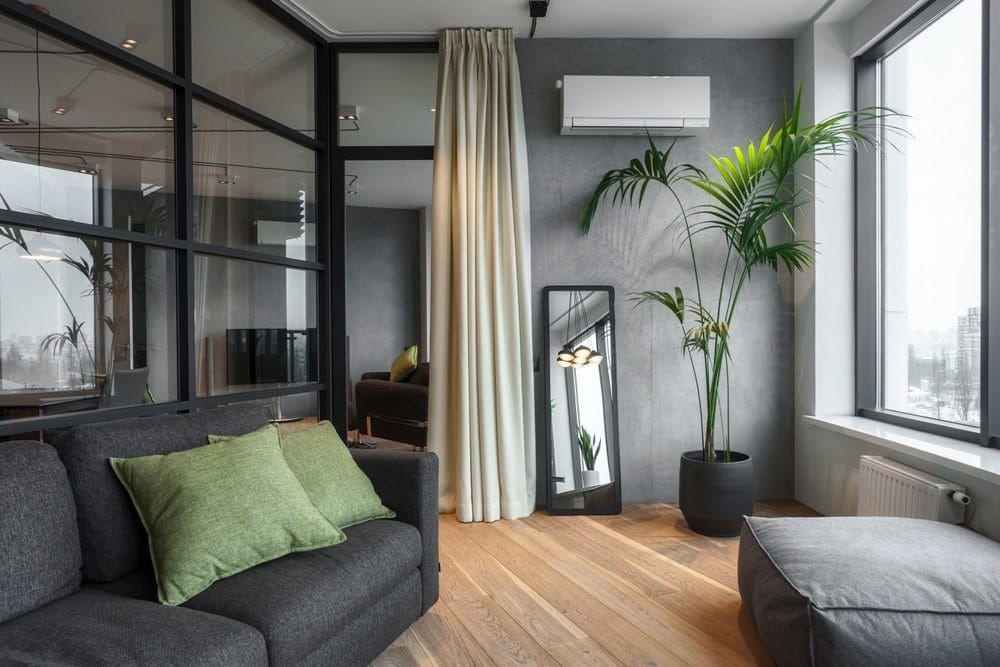
A concrete-effect accent wall paired with sleek metal furniture and soft, luxurious textiles creates a balanced contrast between hard and soft elements.
Accent wall patterns and designs
Patterns and designs can elevate your accent wall from basic to bold. Let's look at creative ways to play with patterns and designs on accent walls to create a more personalized and artistic expression in your space.
Geometric patterns
Geometric patterns can bring a modern, artistic touch to any room. A geometric accent wall can add an eye-catching feature, whether you prefer triangles, hexagons, or more complex shapes.
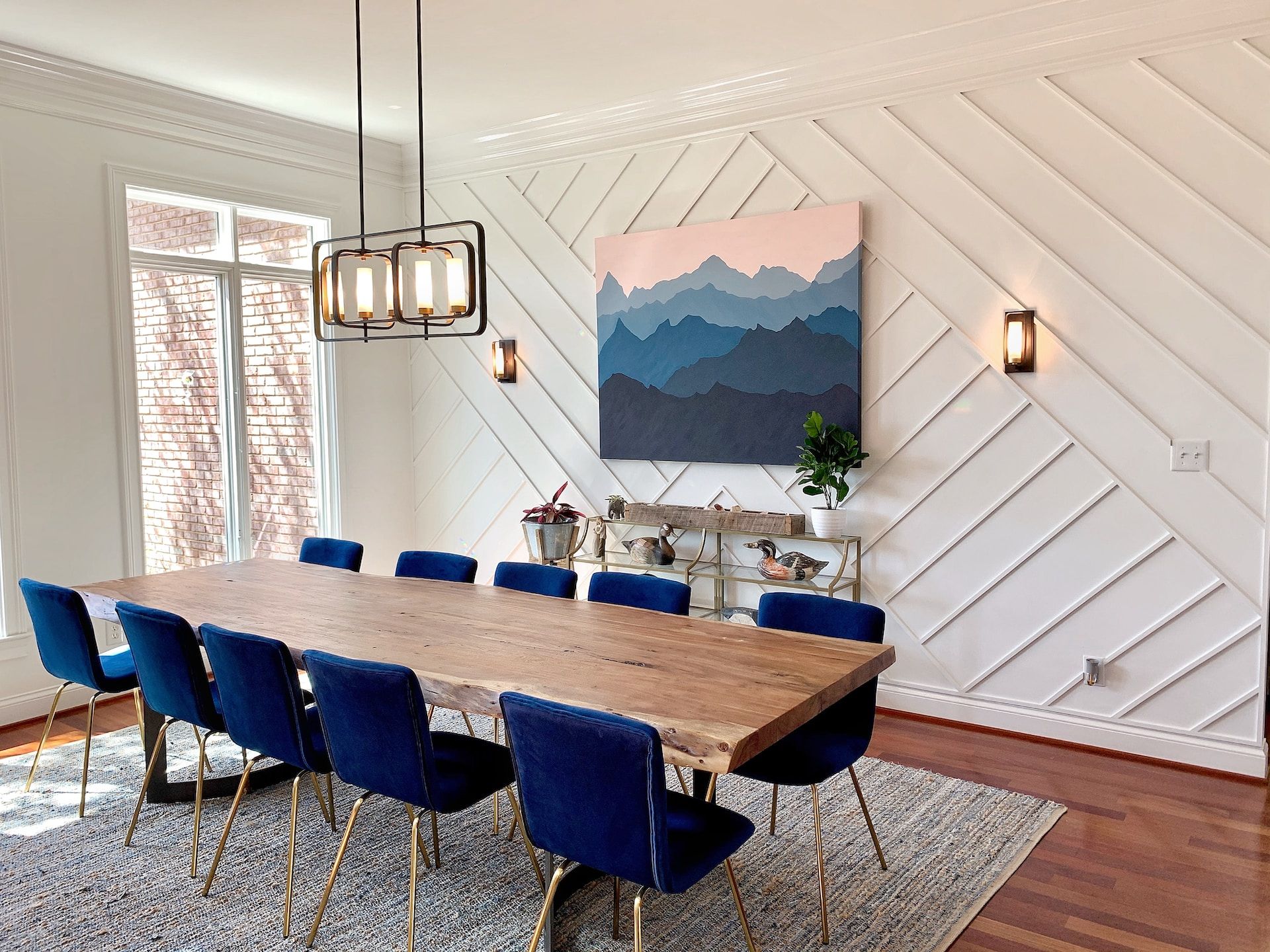
Tic-Tac-Toe design
This playful design features bold, intersecting lines that create a grid-like pattern reminiscent of a tic-tac-toe board. This pattern is particularly fun for kids' rooms or playful spaces like game rooms. Consider using a combination of contrasting colors for a graphic effect that adds a sense of fun and creativity to the room.
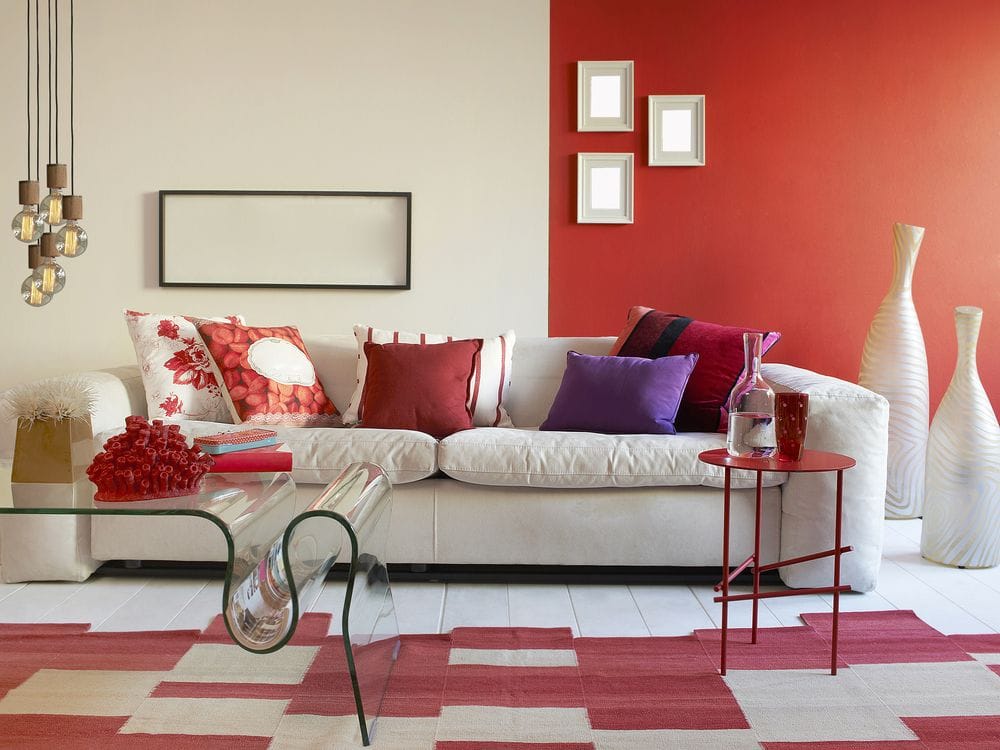
Abstract accent wall
For a more artistic approach, an abstract accent wall allows for creative freedom. An abstract accent wall can turn your space into a gallery-like setting, whether through bold brushstrokes, splatters, or even a mural-like design.
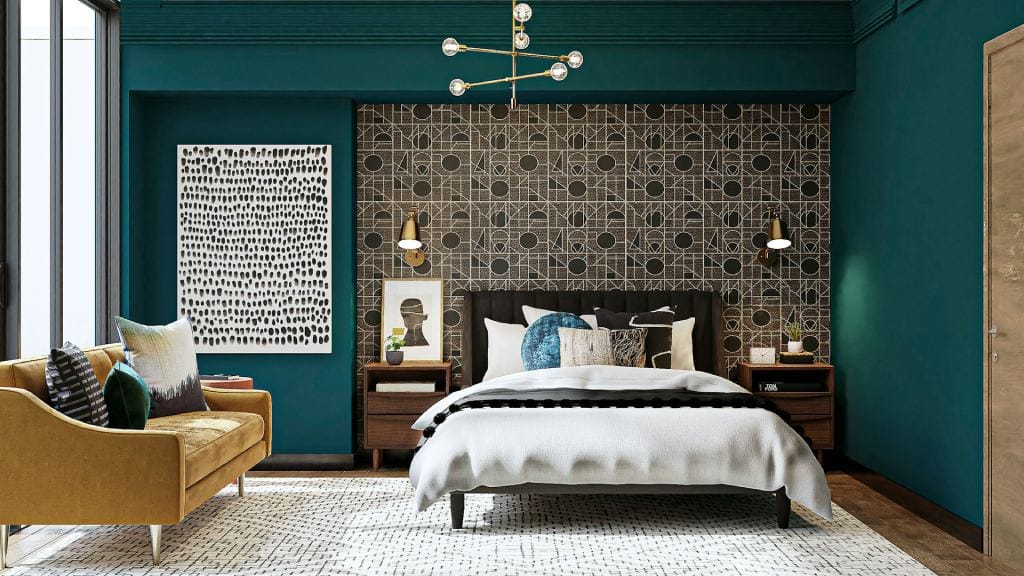
Arch shapes
Arches are making a comeback in interior design. Incorporate an arched shape into your accent wall design to add visual interest and architectural detail to the room. Paint a large arch behind a bed or sofa or add a large mirror to create a focal point that also adds dimension to the space.
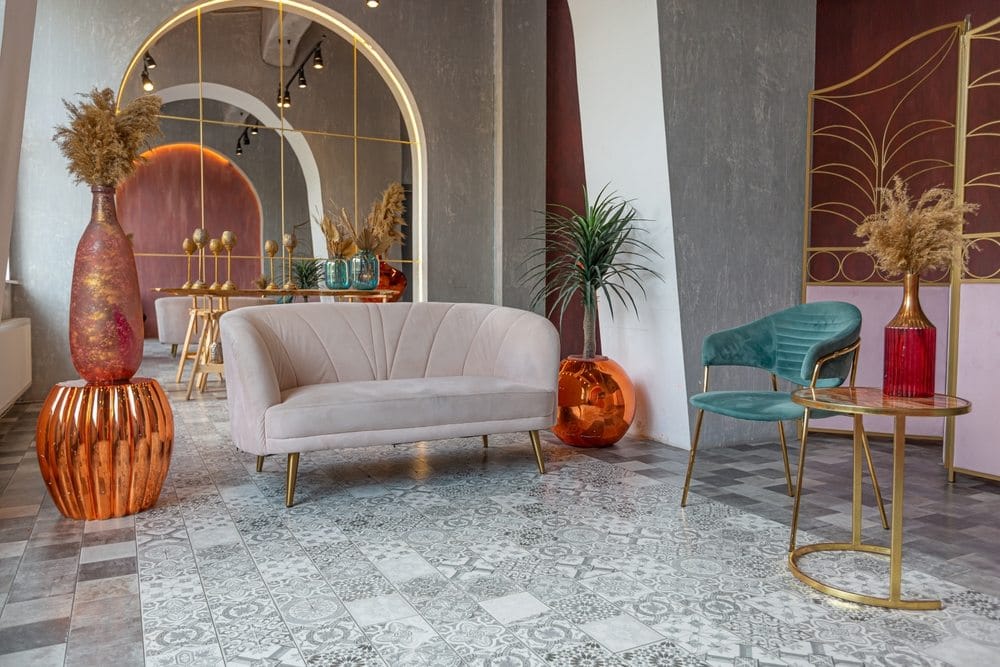
Speckled wall
If you're looking for a more subtle pattern, a speckled accent wall can offer a soft, textural effect without being too overpowering. This design works particularly well in bedrooms or nurseries where you want to create a calming yet visually interesting environment. Pairing it with muted colors and soft furnishings completes the look.
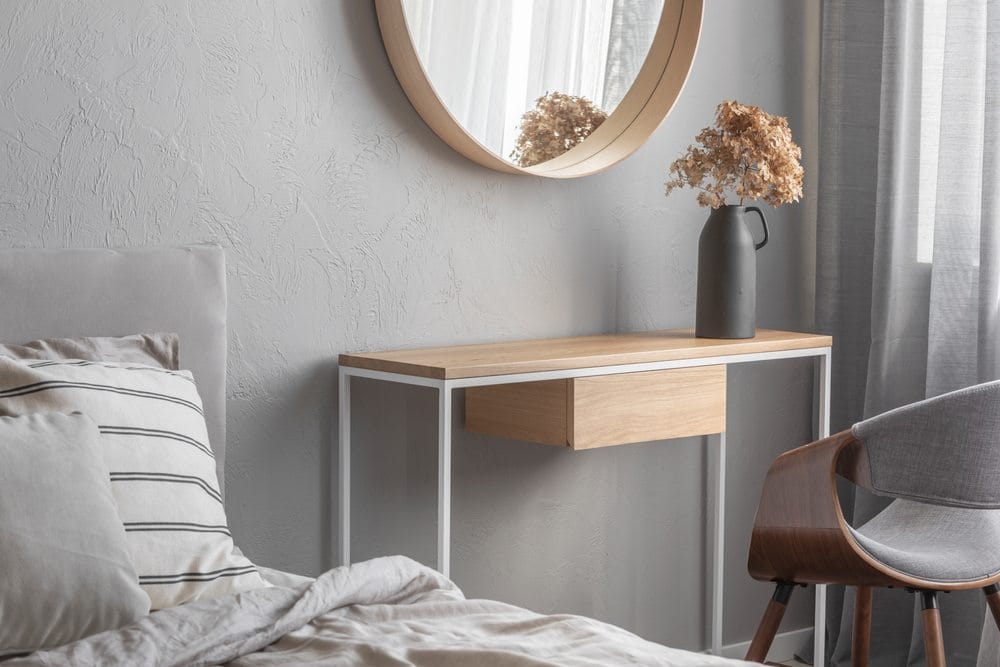
Curved molding design
Curved moldings are a sophisticated way to add texture and pattern to an accent wall. This design technique works well in more formal spaces, like dining rooms or entryways, where you want to make a statement without being too loud. The curves add a sense of movement and elegance, perfect for a refined, polished look.
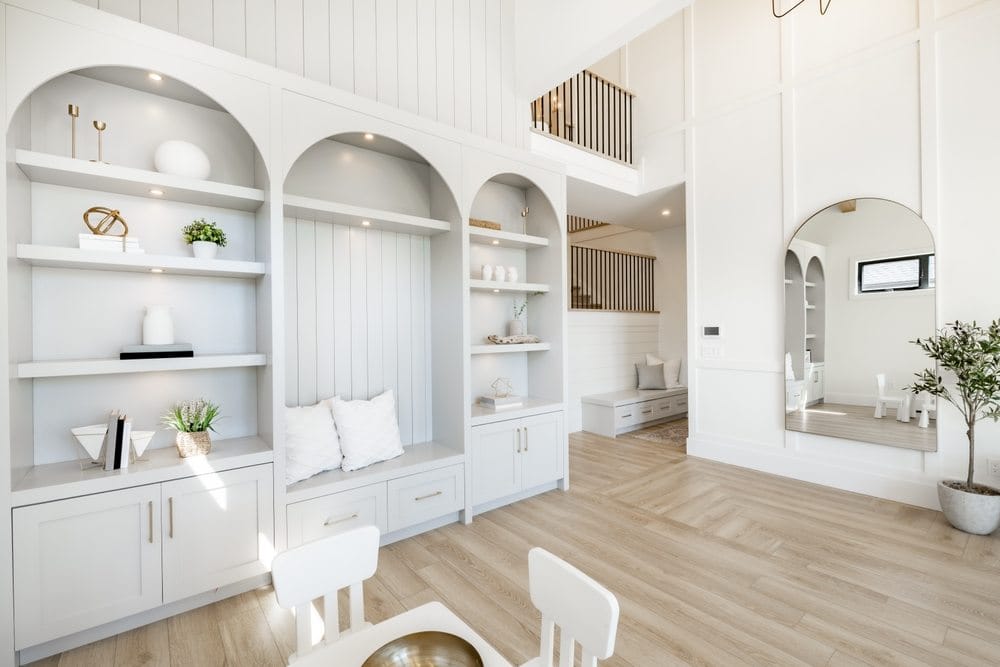
Decorative elements for accent walls
How you decorate your wall also matters. Decor elements can take your accent wall to the next level, offering a chance to infuse your personality into the design.
Gallery wall
Creating gallery walls is a tried-and-true way to add art and visual interest to your space. Group a selection of framed wall art, photographs, or other wall decor on your accent wall to create a personal and dynamic focal point. This works well in living rooms or hallways, where you can showcase your favorite pieces.
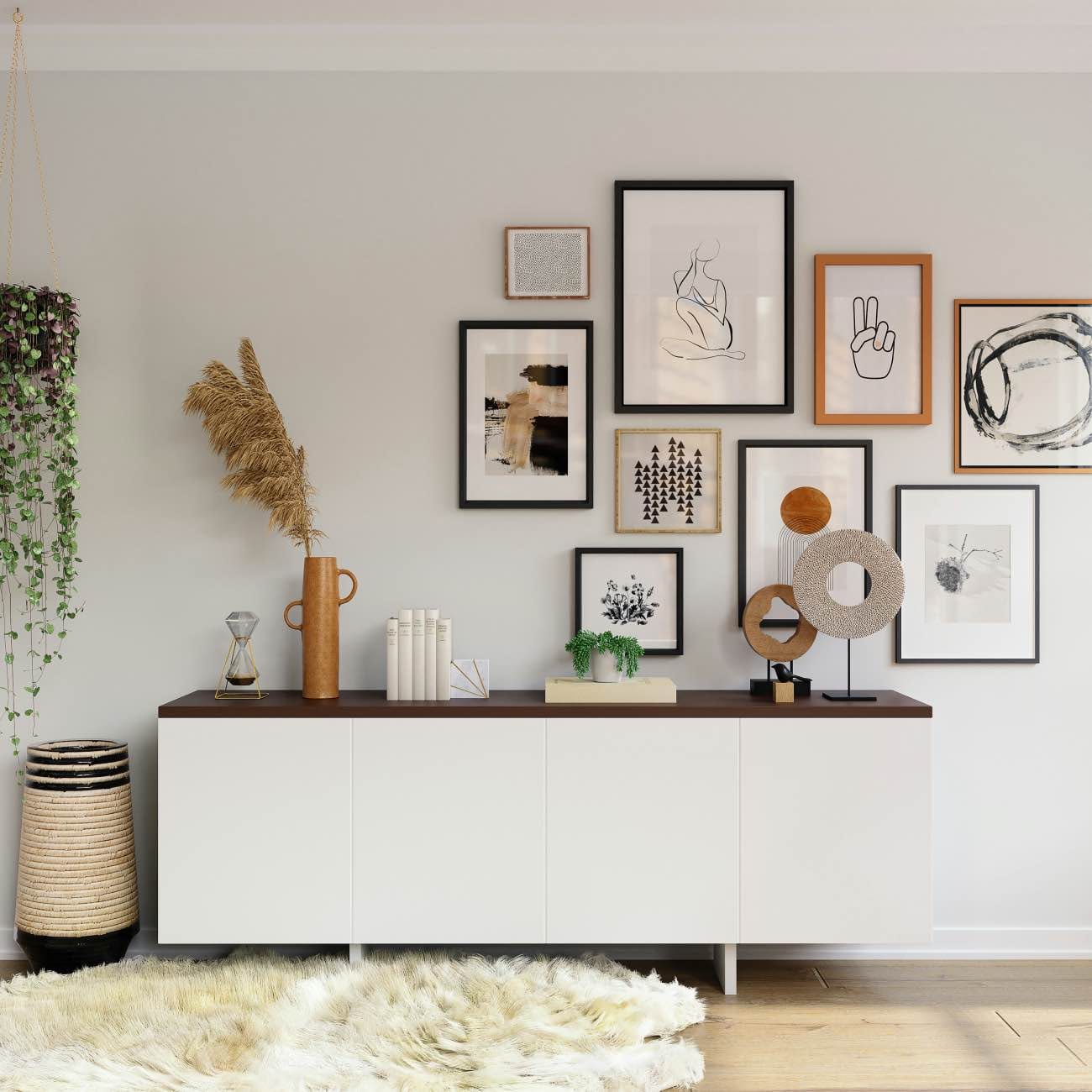
Wall mural
For a truly one-of-a-kind accent wall, consider installing a mural. Whether you opt for a hand-painted design or a high-quality wall decal, murals can transform a room into a visual masterpiece.
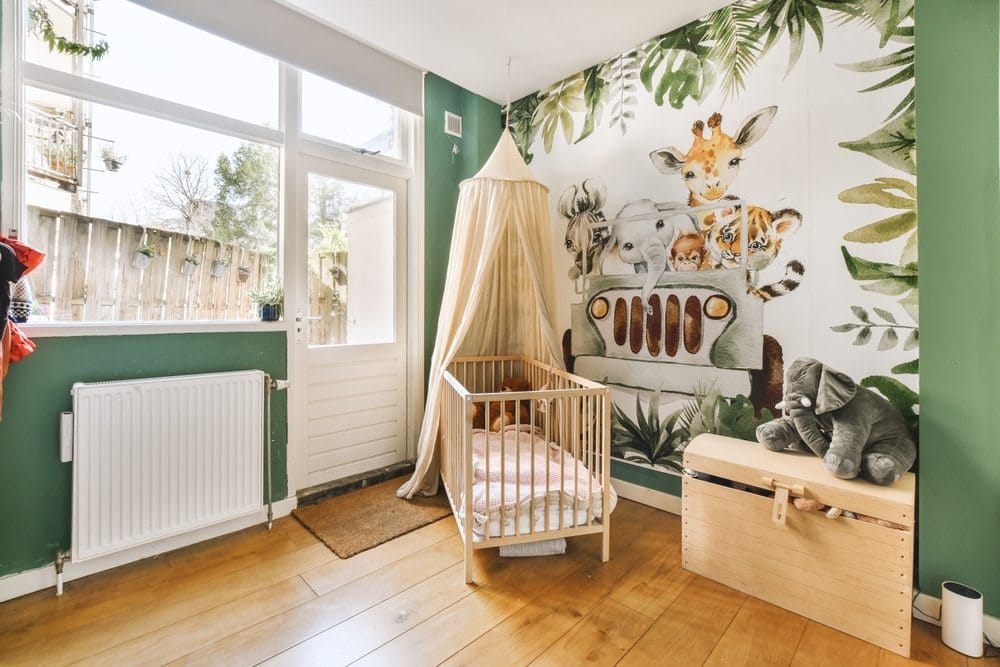
This is a great option for playrooms, bedrooms, or even a dining room where you want to create a dramatic statement. You can also contact local artists to see if they offer this service.
Wallpaper
Wallpaper is making a major comeback, and many are jumping on this trend. Creating an accent wall is a fantastic way to introduce pattern and texture into your space.
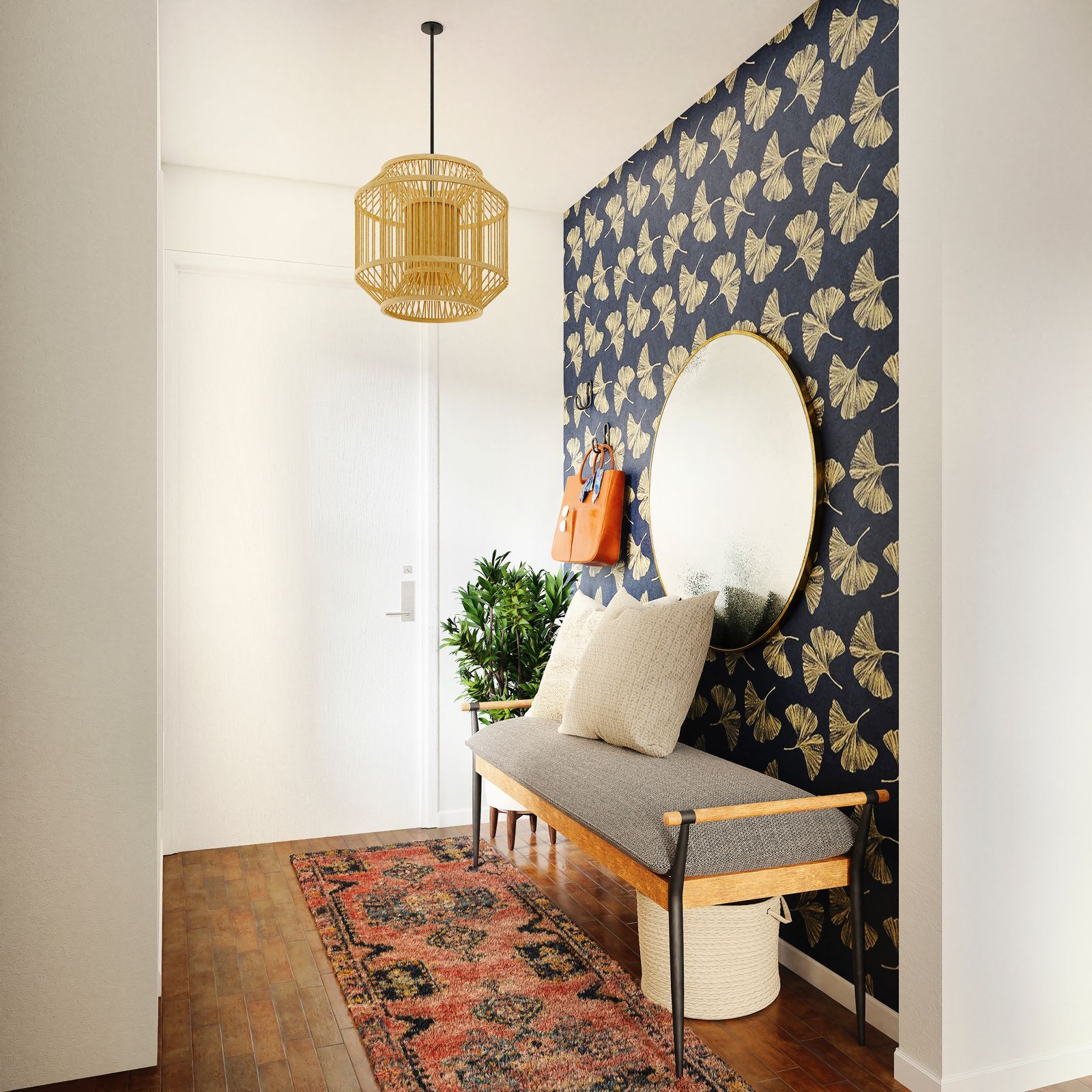
Choose from bold florals, contemporary geometric designs, or even textured wallpapers to add visual interest. It’s a perfect solution for spaces like powder rooms, where you can experiment with bolder patterns without overwhelming the room.
Basket display
Using baskets as wall decor is a unique and earthy way to create an accent wall. Arrange woven baskets of varying sizes and patterns to create a textured, bohemian-inspired display. This approach works beautifully in dining rooms or entryways, adding warmth and a global-inspired feel to the space.
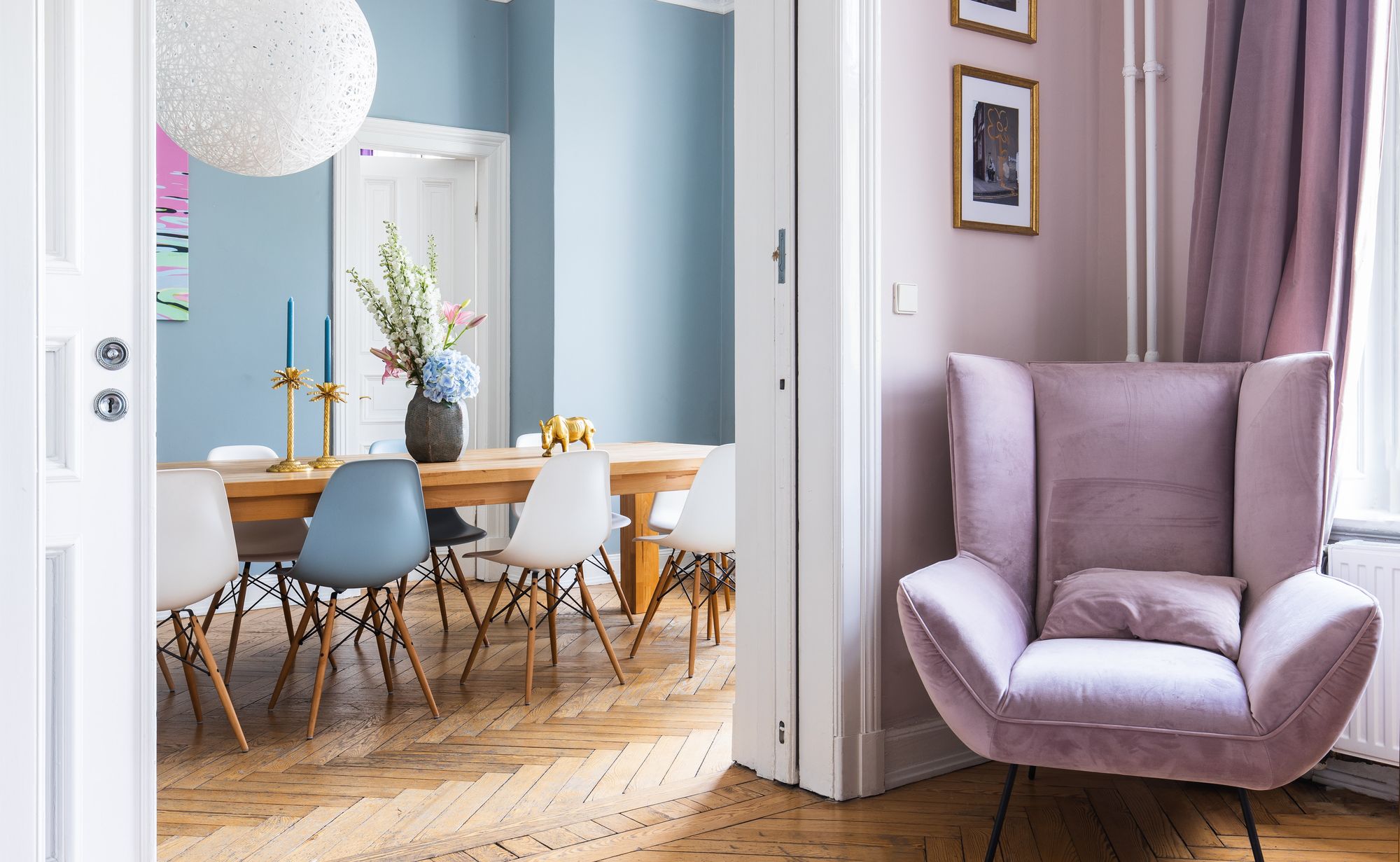
Antique frame collection
For a touch of vintage charm, consider using a collection of antique frames to create an accent wall. Mix and match different sizes and finishes to create a curated, eclectic look. This idea works well in living rooms or bedrooms, adding a layer of history and character.
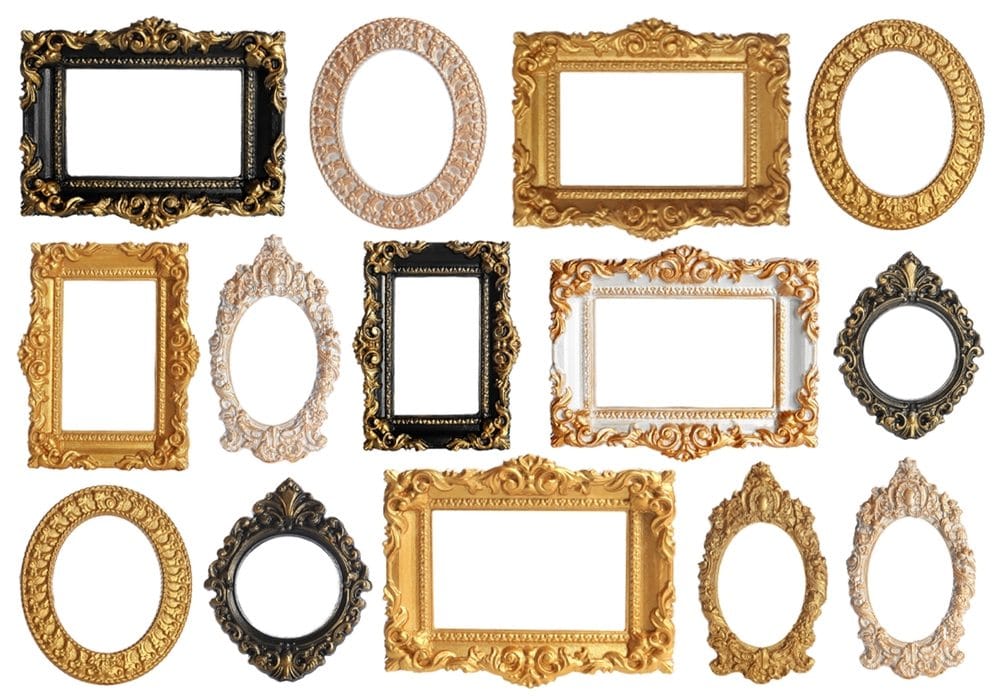
Accent walls by room type
While accent walls can work in any room of your home, they often perform a slightly different function. The design of your accent wall should complement the room and its style.
Living room accent walls
Accent walls can be focal points in a living room, drawing the eye toward a specific area, like the space behind the couch or around the fireplace. A dark, dramatic accent wall can anchor the room, while a more subtle, textured wall can add dimension and warmth without overwhelming the decor.
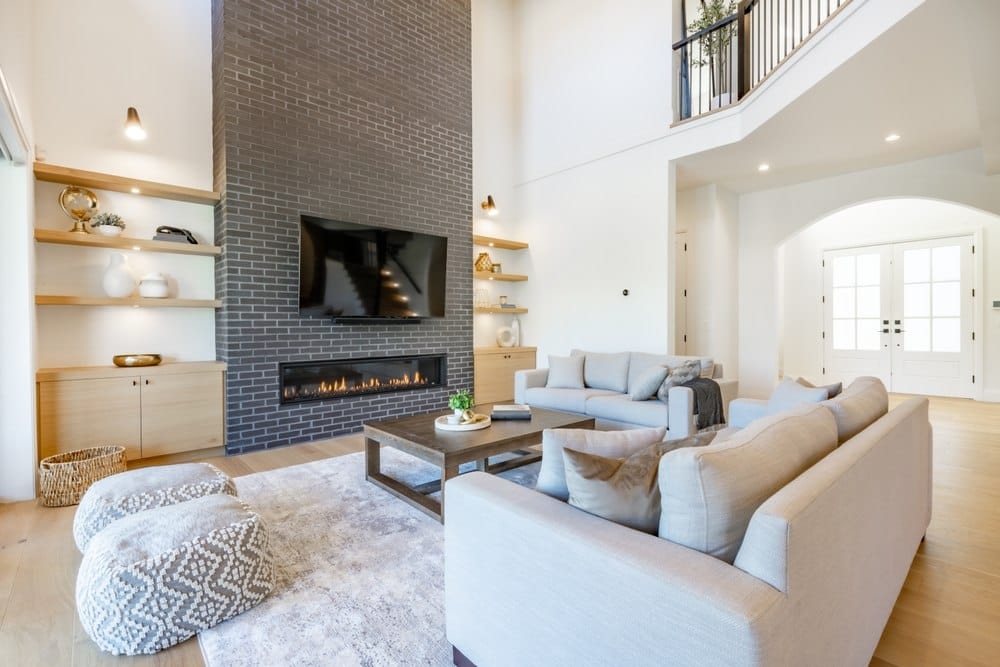
Bedroom accent walls
Accent walls are often used behind the headboard in bedrooms to create a focal point. Opt for soothing colors like lavender or light blue for a calm, restful vibe, or go bold with a black accent wall for a dramatic, moody atmosphere. Adding texture, such as wood paneling or a mural, can enhance the space's coziness.
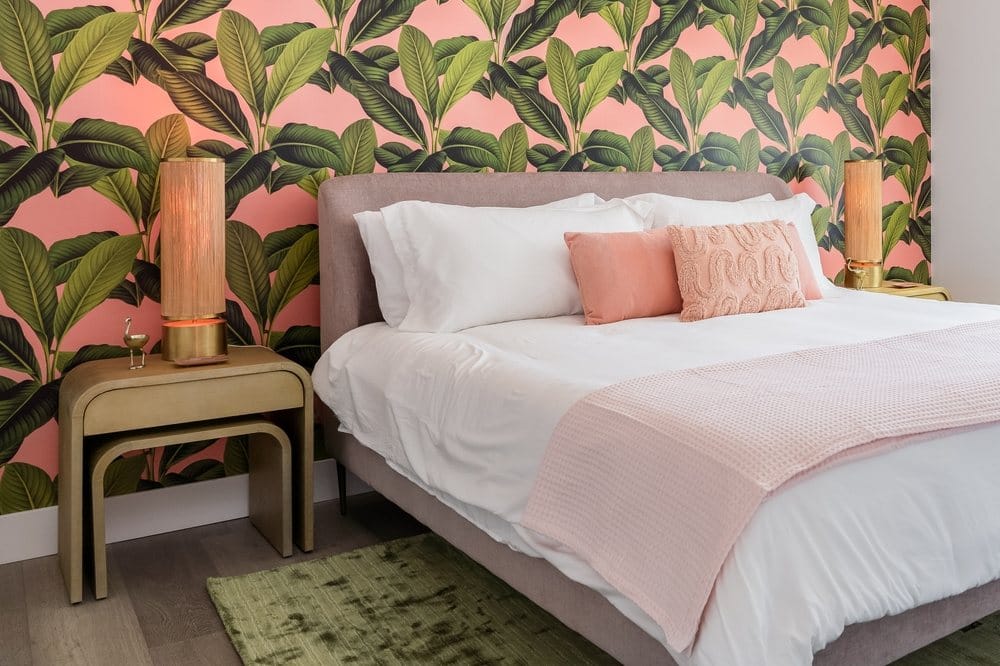
Dining room accent walls
A well-chosen accent wall in the dining room can create a welcoming atmosphere that encourages conversation and sets the tone for the space. Consider using rich colors like deep red or black or a textured material like board and batten or shiplap to add warmth and character.
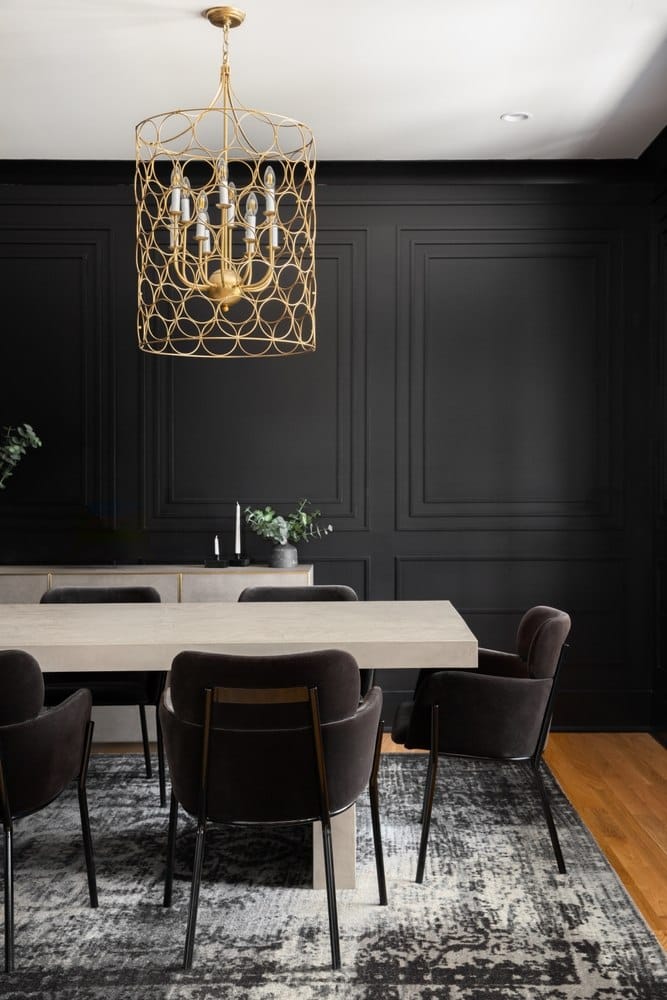
Kitchen accent walls
While not as common as in other rooms, kitchen accent walls can add personality to the space. Consider using a bold paint color or a textured material like brick or tile to create a striking contrast against sleek cabinetry and countertops.
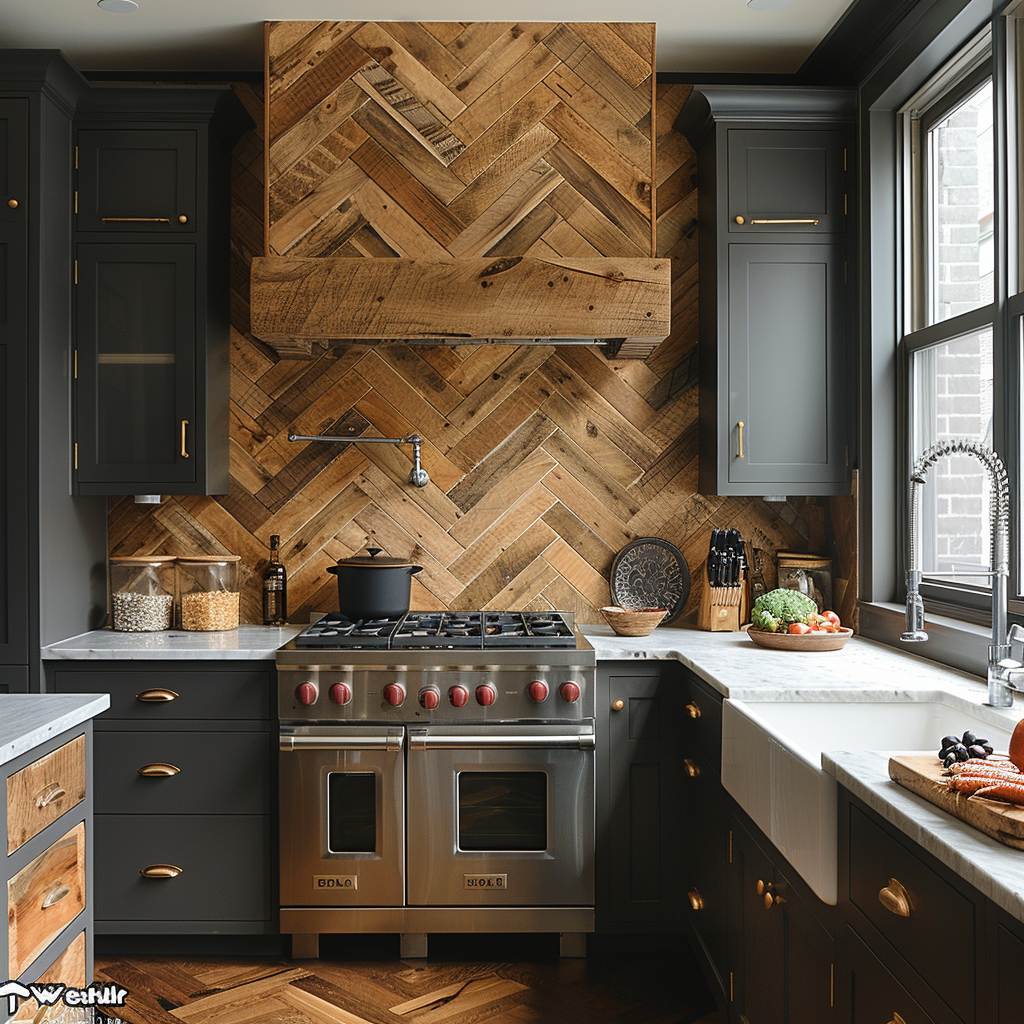
Bathroom accent walls
Accent bathroom walls can make a bold statement, especially in a small space. Opt for bold colors, like black or navy blue, or consider a unique material, like stone or textured wallpaper, to add visual interest and sophistication.
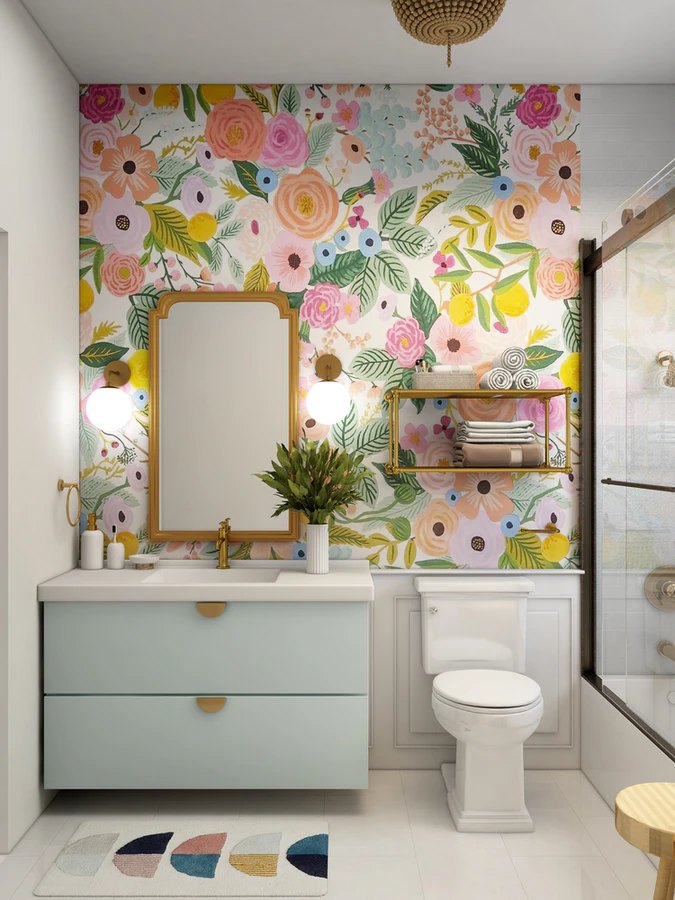
Accent wall tips and techniques
Creating an accent wall is more than just picking a color or material. It’s about understanding the space and using it to your advantage. Here are some practical tips and techniques to ensure your accent wall has the desired impact.
DIY accent wall projects
Creating accent walls is one of the most popular DIY projects for homeowners. If you're attempting this for the first time, go with paint. It's the easiest option—whether it's a simple solid color or a bold pattern. If you're feeling more adventurous, try installing wood panels, creating a faux concrete effect, or even applying peel-and-stick wallpaper.
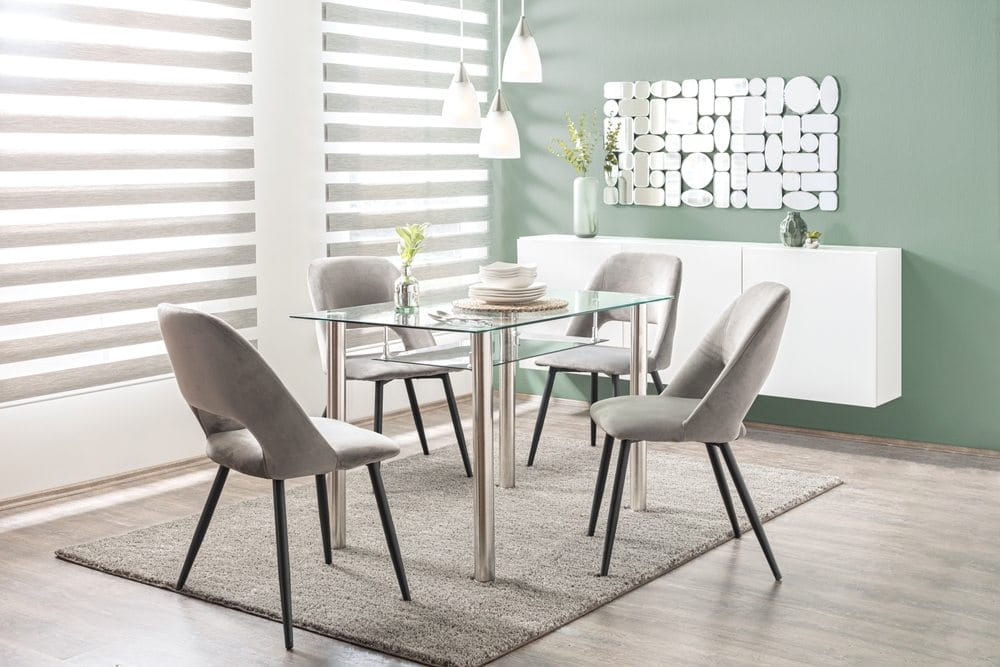
DIY accent walls allow you to customize your space without a large budget and offer the satisfaction of completing a project yourself. Proper preparation is key: Always clean and prime the wall before applying paint or materials.

Accent walls in small spaces
Many homeowners assume accent walls work best in large rooms, but can also work wonders in smaller spaces. In fact, a well-placed accent wall can make a small room feel more expansive by drawing the eye outward or upward.
For instance, a vertical shiplap wall in a narrow hallway can add height, while a bold color on one wall in a small bedroom can define the space without overwhelming it.
Incorporate accent walls with room decor
A successful accent wall harmonizes with the rest of the room’s decor. To create a cohesive look, start with the colors and textures you already have in your space.
On the other hand, if your decor is already colorful, a more subdued wall treatment—such as wood paneling or a soft, textured paint—will add interest without competing for attention.
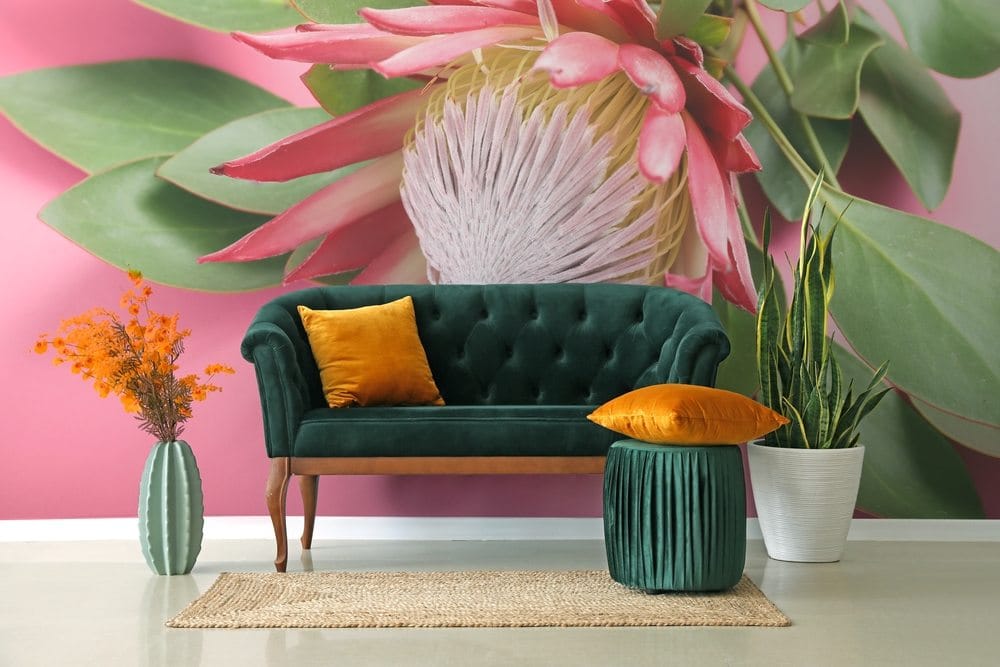
Conclusion
A bold and eye-catching accent wall can add drama and flair, while a subtle and textured one can add depth and warmth. Before you decide, visualize how the color, texture, or pattern will interact with your existing decor and the room’s natural light.
Whether you’re going for a contemporary geometric pattern, a rustic wood panel, or a dramatic black wall, choose something that resonates with you and enhances your space. This is your opportunity to express your creativity and transform your home into a space that reflects your personality.
FAQ
Which walls should be accent walls?
The best choice for an accent wall is the first wall you see upon entering the room or a wall that naturally draws attention, like the one behind a bed, fireplace, or couch. Choose a wall without distractions, like windows or doors, for the best effect.
Should an accent wall be darker or lighter?
An accent wall can be either darker or lighter, depending on the mood you're trying to create. Darker walls add drama and depth, while lighter walls can make a space feel more open and airy.
What can I do for my accent wall?
You can paint it a bold color, apply textured materials like wood or stone, create a geometric or abstract pattern, use wallpaper, or even hang decorative elements like a gallery of frames or a wall mural.
What are the interior design rules for accent walls?
Choose a wall that stands out and complements the room's decor. Make sure it's free of distractions like windows or doors. Keep balance in mind—an accent wall should enhance, not overwhelm, the room.
